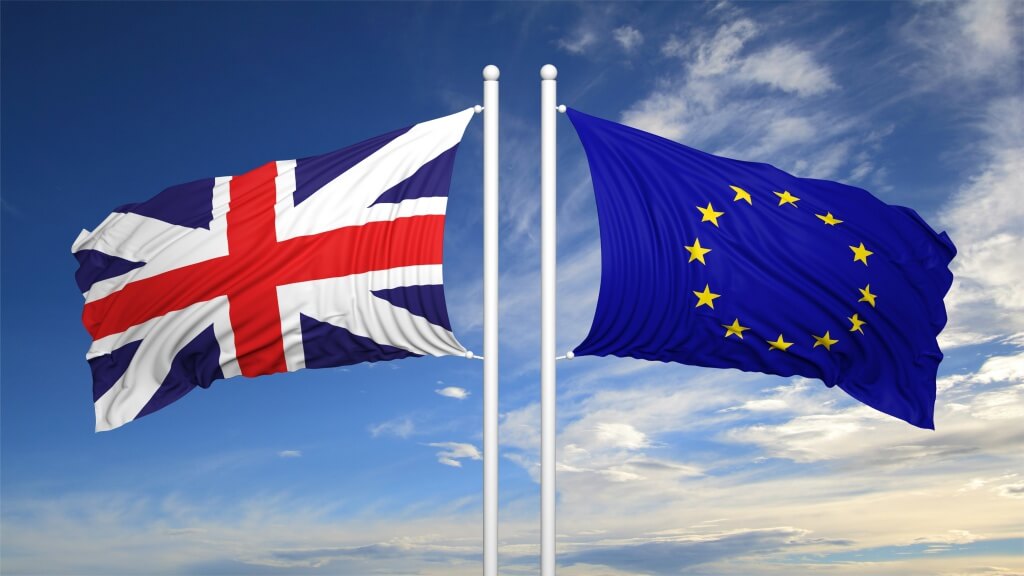
We’re five weeks away from Britain’s referendum on European Union (EU) membership, and the race appears closer than ever. Should the United Kingdom stay in the European Union or go its separate way? British voters will have the opportunity to express their views on June 23 in what has been described as the most crucial referendum in modern European history.
For traders, Brexit carries very real consequences. While the extent of those consequences aren’t fully known yet, the global financial markets will be on high alert in the weeks and days leading up to the vote. With both the ‘Remain’ and ‘Leave’ camps in full campaign mode, it’s becoming more difficult to separate fact from fiction. In this article we cut through the misinformation to provide traders with an easy-to-follow Q&A guide for all things Brexit.
How was the referendum established?
The Conservative party’s election victory in 2015 activated a promise to hold a referendum on EU membership by the end of 2017. Under pressure from Eurosceptic members of his own party and faced with an increasingly popular Ukip, British Prime Minister David Cameron in January 2013 said he would present British voters with an In/Out option on EU membership under one condition: they re-elect him in 2015. That promise eventually formed an important part of the Conservatives’ election platform.
The Conservatives swept to power in 2015 with their first outright majority since 1992. The extent of the tory victory surprised political analysts, who were expecting a more contested outcome.[1]
What will the referendum ask?
On June 23, voters will be asked the following question:
Should the UK remain a member of the EU or leave the EU?
Who can vote in the referendum?
In order to be considered eligible to vote in the upcoming referendum on EU membership, voters must be British citizens living in the UK, British citizens living overseas for less than 15 years, citizens of Ireland, Malta and Cyprus living in the UK, commonwealth citizens living in the UK and commonwealth citizens living in Gibraltar. In this sense, the criteria for voting in the referendum is the same as the one for voting in the general election.[2]
What are the key arguments in favour of Brexit?
Those in favour of Brexit cite numerous advantages to quitting the EU. Most of these advantages are related to the issues of sovereignty, regulations, nationalism, budgetary implications, economics and trade. They argue that, by leaving the EU, Britain will gain independence on a number of important policy issues relating to immigration and security, save billions of pounds in membership costs and reduce regulatory hurdles on UK businesses imposed by Brussels.
What are the key arguments against Brexit?
Those in favour of remaining in the EU also cite numerous advantages of continued membership. Among the top reasons for staying include increased labour and capital and labour mobility, easier goods and services trade and numerous indirect benefits of remaining part of a unified Europe,[3] not to mention avoiding the unknown consequences of quitting the EU.
How long would it take for Brexit to be implemented?
A vote to leave the European Union would lead to an application to withdraw under article 50 of the Lisbon treaty. Under article 50, the EU would negotiate a new agreement with the withdrawing country – in this case Britain – over a two-year period. This period can be extended only by unanimous consent.[4] However, given that there is no precedent for leaving the EU, the practicalities of a ‘Leave’ vote are vague and poorly sketched out.[5]
What do the experts think?
By and large, the majority of economists believe that Brexit would be harmful for the EU over the short- and medium-terms. According to a survey of more than 100 leading thinkers by the Financial Times, almost three-quarters thought leaving the European Union would damage Britain’s outlook. By comparison, only 8% thought the country would benefit from exiting.[6]
A 2015 report from researchers at The London School of Economics and Political Science made it clear that Brexit would have negative implications on the UK economy.
“The economic consequences for the UK from leaving the EU are complex. But reduced integration with EU countries is likely to cost the UK economy far more than is gained from lower contributions to the EU budget,” say Swati Dhingra, Gianmarco Ottaviano and Thomas Sampson. “Static losses due to lower trade with the EU would reduce UK GDP by between 1.1% in an optimistic scenario and 3.1% in a pessimistic one. The losses due to lower FDI, less skilled immigration, and the dynamic consequences of reduced trade could also be substantial.”[7]
Remember, there is no guarantee any of these researchers are right. However, by and large, most are of the opinion that Brexit would have adverse consequences on the economy over the near term.
Which side is more likely to win?
In order to predict which side of the Brexit debate is more likely to win, we have to rely on public opinion polls. While the 2015 UK elections proved just how inaccurate leading polls can be, they are one of the only reliable gauges we have for predicting the outcome of Brexit. According to various poll trackers from Bloomberg,[8] the Financial Times[9] and others, if the vote were held tomorrow, the ‘Remain’ camp would come out on top. However, The Telegraph’s poll of polls tracker shows a 50-50 split as of May 3.[10]
Is UK Prime Minister David Cameron for or against Brexit?
UK Prime Minister David Cameron is opposed to Brexit and is campaigning hard to convince members of his own cabinet and the public at large to remain part of the EU. Mr. Cameron became more vocal of his opposition to Brexit after he negotiated new EU membership terms for his country back in November.
“I will be campaigning with all my heart and soul to persuade the British people to remain in the reformed European Union that we have secured today,” Mr. Cameron said at a press conference last November after reaching the new agreement with 27 fellow EU leaders.[11]
The Prime Minister’s deal includes a number of stipulations guaranteeing that Britain is not tied to “ever closer union” with other EU countries, as well an “emergency brake” on migrant in-work benefits and child benefits for EU migrants living overseas. Mr. Cameron’s opponents described the compromise as “hollow” and that it only offers “very minor changes.”[12]
Who is backing the ‘Leave’ camp?
Vote Leave and Leave.eu are the two main groups campaigning for Brexit. Vote Leave is a cross-party organization of Members of Parliament and peers from the Conservative, Labour and Ukip parties.
There are three main Eurosceptic groups supporting the effort to leave the EU. They include: Conservatives for Britain, the Labour Leave campaign and Business for Britain. The ‘Leave’ campaign is being run by the Taxpayers’ Alliance campaign and is backed by several members of David Cameron’s Cabinet, including Michael Cove, Iain Duncan Smith, Theresa Villiers, Chris Grayling and John Whittingdale.[13]
What kind of relationship would Britain have with the EU should the ‘Leave’ vote succeed?
Nobody knows for sure, but there are several models the UK could adopt. The UK may follow in the footsteps of Norway, which is outside the EU but part of the European Economic Area (EEA) that allows it to remain part of the union so long as it applies various aspects of EU law. Another model is Switzerland, which has signed several bilateral agreements with the EU instead of signing up for the entire EU framework. An extreme case would be the UK severing ties to the EU completely.[14]
What are the indirect implications of Brexit?
With Euroscepticism on the rise throughout the region, a vote to leave the EU by one of the region’s biggest economies could lead to contagion. Last year’s painful negotiations between Greece and its troika of lenders threatened to undermine the EU project. The consequences of Brexit would be far more catastrophic. According to analysts, Brexit would embolden nationalist elements across Europe to campaign for independence.
This view isn’t limited to the experts. According to a recent survey by Ipsos Mori, half of Europeans believe that Brexit would trigger a domino effect causing other countries to exit the 28-member bloc, with 40% fearing a smaller EU by the end of the decade.
“Internationally, the more common view is that the UK would suffer less than the EU from the break-up,” Bobby Duffy, the managing director of Ipsos Mori’s Social Research Institute, said in an e-mailed statement that was quoted by Bloomberg.
Europeans “feel there is likely to be a ripple effect following the UK vote,” he added. This “lends a sense that even if the vote is to stick with the status quo in June, it will not be the end of the EU’s challenges.”[15]
How will Brexit impact the financial markets?
If there’s anything the market hates, it’s uncertainty. The consequences of Brexit are about as uncertain as they get. For that reason, investors can expect heightened volatility before and during the Brexit vote. There’s no predicting just what might happen should Britons vote ‘Leave’ on June 23.
A ‘Leave’ vote would have a direct impact on the UK’s financial services sector, given that nearly all of the UK’s financial regulations are rooted in EU law. This means that Brexit would require a significant restructuring of Britain’s existing financial regulations.
According to Ranjeet Sandhu, director of London Stone Securities, “Following a Brexit, there will undoubtedly be regulatory and financial changes which will impact some U.K. companies adversely.”
“We expect there to be some limited migration of euro-denominated businesses to mainland Europe … we predict a modest impact of 4-7 percent of businesses relocating in the event of a Brexit.”[16]
How can traders prepare for Brexit?
The first step in preparing for Brexit is to understand that a ‘Leave’ victory on June 23 could have major consequences that are difficult to predict. What trader’s may need to prepare for is increased volatility in the markets, particularly those linked to the UK.
[1] George Parker (May 6, 2015). “Conservatives secure stunning victory.” Financial Times.
[2] The Week (May 4, 2016). “EU referendum: Pros and cons of Britain voting to leave Europe.” The Week.
[3] Mike Bird (May 15, 2015). “HSBC just explained all the major economic arguments for and against Britain leaving the EU.”
[4] The Economist (February 27, 2016). The Brexit delusion.
[5] Ruadhan Mac Cormaic (February 15, 2016). “Brexit Q&A: Everything you need to know.” Irish Times.
[6] Chris Giles and Emily Cadman (January 3, 2016). “Economists’ forecasts: Brexit would damage growth.” Financial Times.
[7] Swati Dhingra, Gianmarco Ottaviano and Thomas Sampson (May 2015). “Should We Stay or Should We Go? The economic consequences of leaving the EU.” The London School of Economics and Political Science.
[8] Bloomberg. Brexit Watch Indicators.
[9] Financial Times. Brexit poll tracker.
[10] Ashley Kirk and Michael Wilkinson (May 5, 2016). “EU referendum poll tracker and odds.” The Telegraph.
[11] Dario Thuburn (February 20, 2016). “Cameron takes on eurosceptics after EU ‘special status’ deal.” Yahoo! News.
[12] BBC (February 20, 2016). “EU deal gives UK special status, says David Cameron.” BBC.
[13] BBC. (Match 14, 2016). “The battle to be the official EU referendum Leave campaign.” BBC.
[14] Ruadhan Mac Cormaic (February 15, 2016). “Brexit Q&A: Everything you need to know.” Irish Times.
[15] Svenja O’Donnell (May 9, 2016). “Domino Effect Seen by Half of Europeans If U.K. Exits EU.” Bloomberg.
[16] Mark Hanrahan (February 18, 2016). “Brexit: London Financial Sector Divided Over Risks Of EU Departure.” IB Times.


